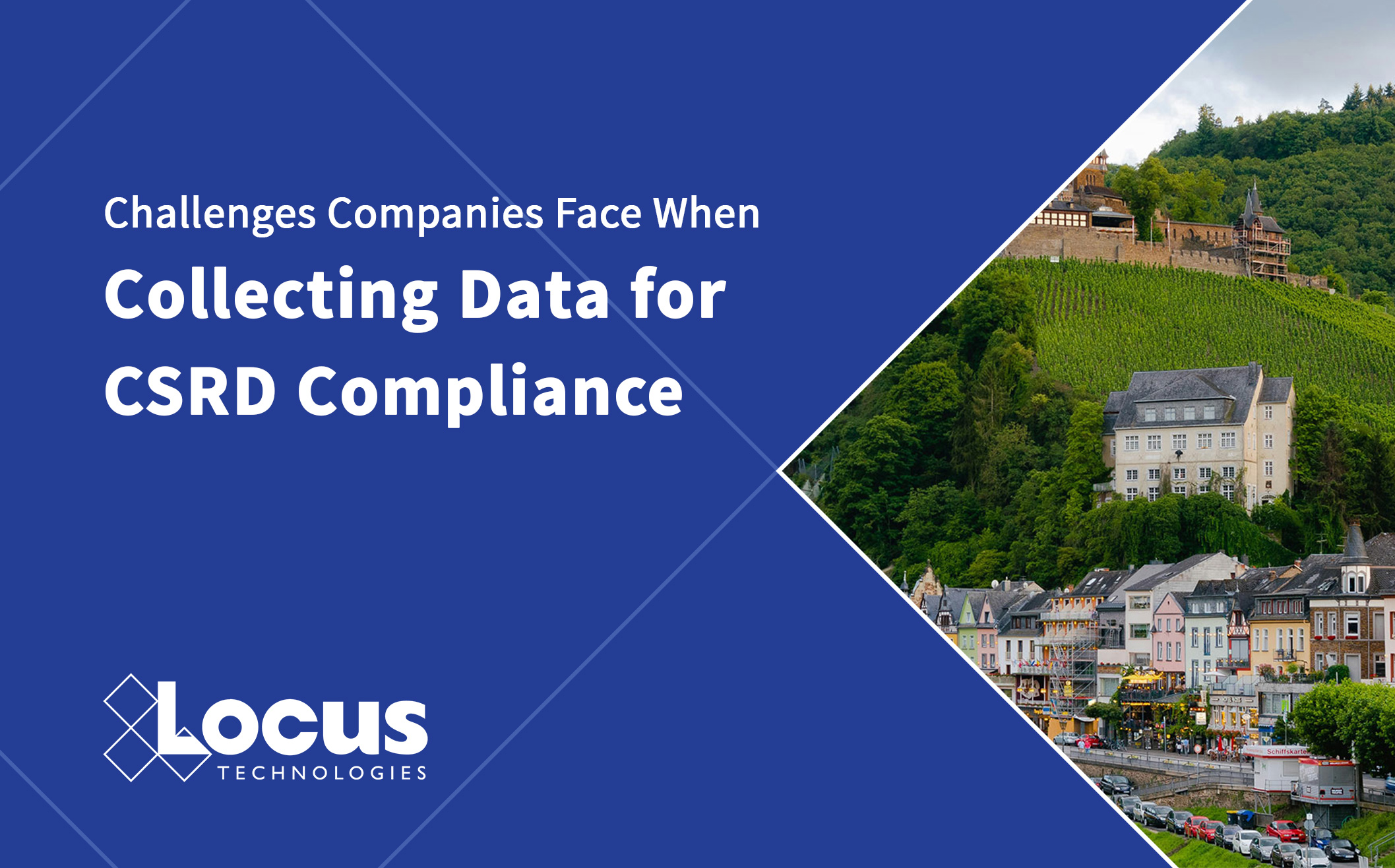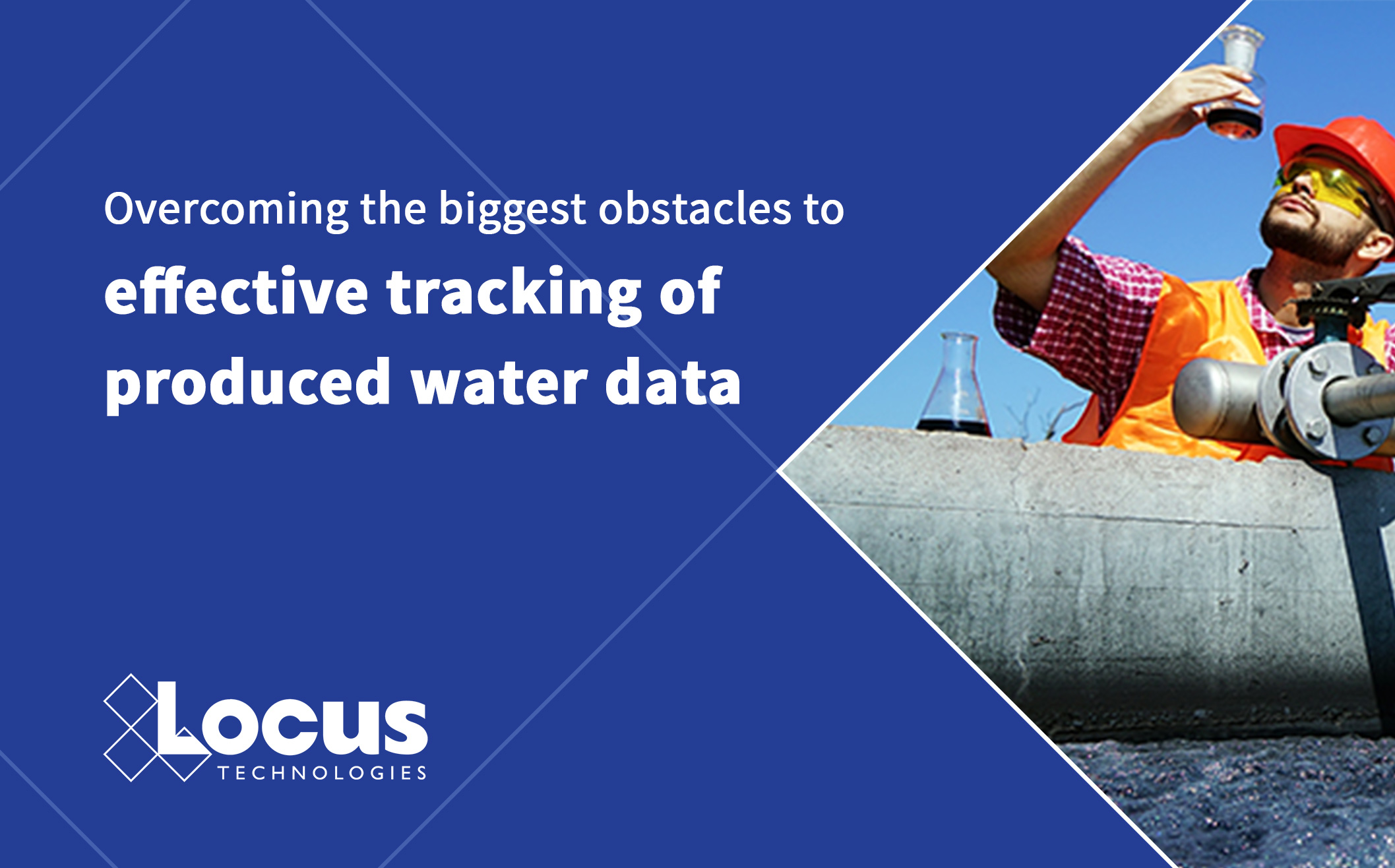
The EU’s Corporate Sustainability Reporting Directive (CSRD) represents a significant shift in how companies must approach sustainability reporting. As of 2024, large public-interest companies and those meeting specific thresholds must comply with more stringent requirements regarding environmental, social, and governance (ESG) data, and the list of affected companies will grow in 2025. While the CSRD aims to increase transparency and improve sustainability practices across the corporate world, companies will face several challenges in collecting and reporting the necessary data. Locus is here to help.
- Complexity of Data Requirements
One of the primary challenges companies face in CSRD compliance is the sheer complexity of the data requirements. The directive mandates the disclosure of a wide range of non-financial information that isn’t usually easily accessible, including carbon emissions, biodiversity impacts, supply chain sustainability, and social factors like diversity and human rights. Each of these categories requires detailed, accurate, and often highly specialized data. For many organizations, these data points are not currently being tracked or reported in a standardized manner, meaning significant systems and processes will need to be implemented or upgraded to comply.
Additionally, the CSRD incorporates the European Sustainability Reporting Standards (ESRS), which provide detailed guidelines for disclosure. This introduces further complexity as companies must ensure that their data aligns with these new standards, which may not always be fully understood or adopted by internal teams. With CSRD deadlines in place, stakeholders may be learning on the job.
Locus CSRD and ESG software was designed to manage the most complex data challenges, including collection, analysis, and disclosures that are aligned with required frameworks.
- Data Availability and Quality
Accurate data is at the heart of CSRD compliance but obtaining reliable and high-quality data can be an overwhelming challenge. For many companies, sustainability data is fragmented and distributed across various departments, systems, or third-party suppliers. This disaggregation of information can lead to inconsistencies, inaccuracies, or gaps in reporting – not to mention new administrative burdens for staff. For instance, carbon emissions data may be collected by the operations team or a third party, while social metrics might come from HR. The lack of integration between these data sets makes it difficult to compile a comprehensive and accurate report.
Additionally, much of the sustainability data required by the CSRD, such as information on supply chain emissions or biodiversity impacts, may not even be readily available from third-party suppliers or stakeholders. Companies will need to invest in better data collection mechanisms, establish clearer reporting expectations with suppliers, and potentially utilize new technologies or platforms to track and validate data across their operations.
Locus CSRD and ESG software offers supply chain data collection tools to simplify the aggregation of third-party data that affects disclosures. We also offer automation tools to streamline the collection of real-time emissions data, energy use, and other relevant ESG metrics — minimizing manual input and improving accuracy.
- Data Standardization and Consistency
Ensuring consistency and comparability of sustainability data is another key hurdle. Unlike financial data, which is governed by established accounting standards, sustainability metrics can vary widely across industries and regions. Companies may need to reconcile different reporting frameworks and metrics, especially if they operate internationally, to ensure their data is consistent with the CSRD’s guidelines.
The CSRD’s emphasis on double materiality—requiring companies to report not only on their environmental and social impacts but also how sustainability factors affect their financial performance—adds another layer of complexity. Organizations must develop a robust methodology to determine what data is material to their operations, which may not always be straightforward.
Locus CSRD and ESG software includes standard reporting frameworks, and it is the most configurable software of its kind – enabling any organization to align internal data with CSRD requirements.
- Internal Capacity and Expertise
A significant obstacle to CSRD compliance is the lack of internal expertise. Many companies lack the dedicated sustainability teams or sufficient knowledge in-house to manage the collection, verification, and reporting of the required data. Existing teams may need to undergo extensive training on the CSRD’s specific requirements, as well as on the tools and technologies used to collect and analyze sustainability data.
This skill gap may require hiring additional staff or engaging external consultants, both of which incur time and financial costs. Considering this is “crunch time” for thousands of companies that are still getting their bearings with CSRD, such resources may come at a premium. For many organizations, especially those operating in multiple jurisdictions, the process of developing this internal capacity could be resource intensive.
Locus offers a multinational team of implementation experts who configure data and Locus software to comply with jurisdictional requirements every day, and our European team is standing by to help Locus clients align their data with ESRS and CSRD, specifically.
- Regulatory Uncertainty and Evolving Standards
As the CSRD is rolled out, there is still a degree of regulatory uncertainty around how certain elements will be interpreted and enforced. The European Commission is continuously working to refine the framework and clarify reporting requirements, meaning that companies may face difficulties in adapting to evolving regulations. Companies must stay agile and ensure they have mechanisms in place to update their data collection practices in response to changes in the regulatory environment. Locus CSRD and ESG software is built to flex to shifting requirements; we are ready for the challenge.
Conclusion
The journey toward CSRD compliance presents several significant challenges for companies, from the complexity of the data requirements and ensuring its quality, to the need for internal capacity building and adapting to evolving standards. Locus is here to help companies address these challenges head-on, improve their sustainability practices, build greater transparency, and enhance stakeholder trust.
Locus is the only self-funded water, air, soil, biological, energy, and waste EHS and ESG reporting software company that is still owned and managed by its founder. The brightest minds in environmental science, embodied carbon, CO2 emissions, refrigerants, and PFAS hang their hats at Locus, and they’ve helped us to become a market leader in compliance and ESG reporting software. Every client-facing employee at Locus has an advanced degree in science or professional EHS experience, and they incubate new ideas every day – such as how machine learning, AI, blockchain, and the Internet of Things will up the ante for EHS, ESG reporting software, and sustainability.



